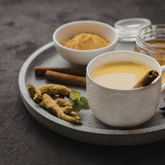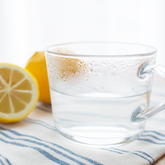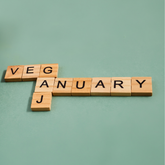In recent years, the popularity of plant-based milk alternatives has skyrocketed. Among them, almond milk has emerged as a top contender for those looking to ditch cow’s milk for health reasons. In this blog post, we’ll explore why almond milk is a healthier choice than cow’s milk.
First and foremost, almond milk is lower in calories than cow’s milk. A cup of unsweetened almond milk contains only about 30-40 calories, whereas a cup of cow’s milk contains around 120 calories. This makes almond milk a great option for those looking to lose weight or maintain a healthy weight.

Almond milk is also lower in fat than cow’s milk. While cow’s milk contains around 8 grams of fat per cup, almond milk contains only 2.5 grams. This makes almond milk a good choice for those looking to reduce their intake of saturated fat, which has been linked to an increased risk of heart disease.
In addition, almond milk is naturally lactose-free, making it a great option for those who are lactose intolerant or have a dairy allergy. Cow’s milk, on the other hand, contains lactose, which is a sugar that can cause digestive issues for those who are unable to digest it.

One source to support this article is a study published in the Journal of Food Science and Technology, which found that plant-based milk alternatives, including almond milk, are a healthier choice than cow's milk due to their lower levels of saturated fat and calories. The study also notes that plant-based milk is a good source of vitamins and minerals, including calcium and vitamin E which is an antioxidant that helps protect cells from damage. It also contains calcium, which is important for maintaining healthy bones and teeth. While cow’s milk is often touted as a great source of calcium, it’s worth noting that many plant-based milks, including almond milk, are fortified with calcium to ensure that they provide a similar amount as cow’s milk. Almond milk is also a sustainable choice. Producing cow’s milk requires a significant amount of resources, including water and land. Almond milk, on the other hand, requires far fewer resources to produce. This makes it a great choice for those looking to reduce their environmental footprint.

In conclusion, almond milk is a healthier choice than cow’s milk for a variety of reasons. It’s lower in calories and fat, lactose-free, a good source of vitamin E and calcium, and a sustainable choice. So, the next time you consider swapping your cow’s milk for plant milk, pick Almond milk – your body (and the planet) will thank you! If you are looking for an easy way to make fresh Almond milk at home,consider trying the Milky Plant a Kitchen based appliance that makes fresh plant milk in three minutes, at the touch of a button.















